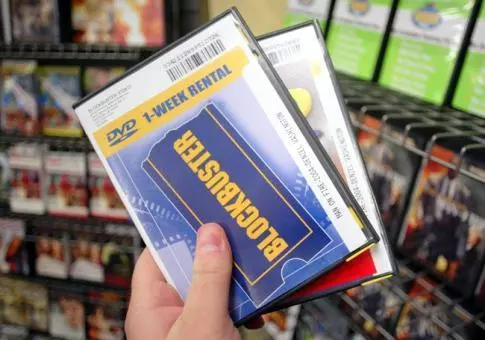 Remember a time in the not-so-distant past when renting a movie meant loading the entire family into the car and driving to the local Blockbuster store? You would scan every shelf looking for the perfect movie. Just as soon as you found the one you wanted to watch, every member of the family would show up with their own favorites. Now, you are standing in line with 5 movies waiting to check out. A small thing would happen when you paid: at the bottom of the receipt, just above “Be Kind, Please Rewind” would be a line for sales tax paid.
Remember a time in the not-so-distant past when renting a movie meant loading the entire family into the car and driving to the local Blockbuster store? You would scan every shelf looking for the perfect movie. Just as soon as you found the one you wanted to watch, every member of the family would show up with their own favorites. Now, you are standing in line with 5 movies waiting to check out. A small thing would happen when you paid: at the bottom of the receipt, just above “Be Kind, Please Rewind” would be a line for sales tax paid.
Much like the typewriter, cassette tape, and 35 mm camera film, technology has led to the extinction of the video store. Now, instead of standing in line, a movie or television program is ordered with the push of a button through your on-demand cable service. As Blockbuster slowly began losing revenue, so followed the local parishes (or counties for outside Louisiana) losing the sales tax revenue.
Historically, sales tax was only paid on the sale of tangible personal property. As we’ve moved further from a goods based economy and more to a service based economy, state taxing authorities have attempted to re-define the concept of tangible personal property to include these digital services in which we are now dependent. But the question remains, is the on-demand movie a piece of tangible personal property subject to sales tax?
Recently, the 5th Circuit Court of Appeals held that on-demand services are NOT subject to sales tax. Jefferson Parish attempted to collect local sales and use tax from Cox Communications in connection with their on-demand services. The District Court found that the services were not taxable. In upholding the ruling, the 5th Circuit maintained that the video on-demand and other pay per view programming were not computer software, but instead a stream of digital data included in the costs of subscription services. The Court also noted that cable television services were exempt from sales tax pursuant to state law.
As further services disappear from physical copies to the digital cloud, it will be interesting to see if the states attempt to change the definition of tangible personal property to expand their tax base. One thing is for sure, with the growth of digital services, this is not an issue that will remain settled for long.





















